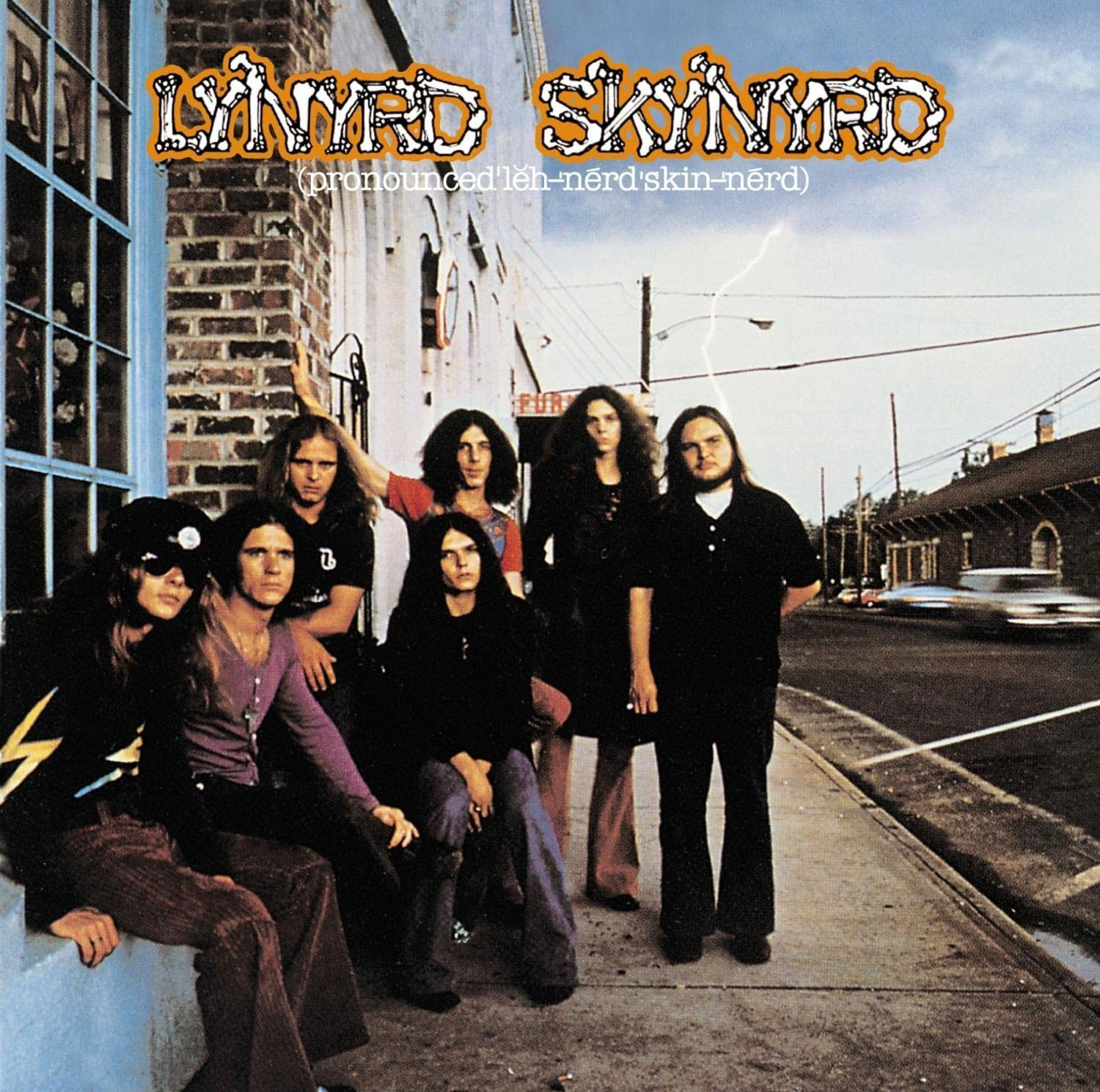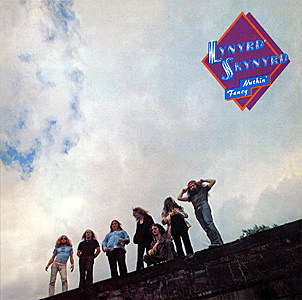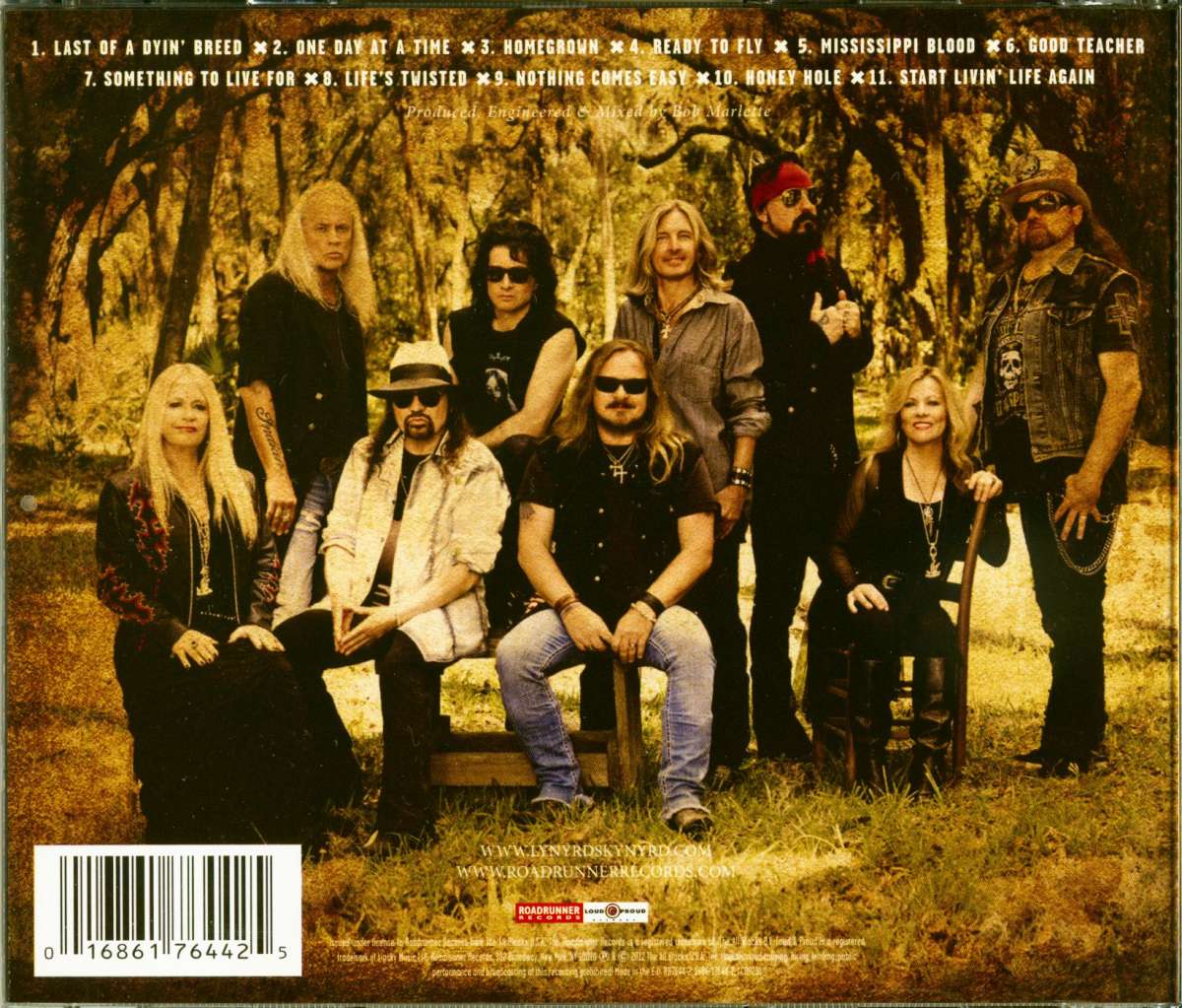
Ronnie Van Zant, Steve Gaines, and his sister Cassie, one of the group's backing vocalists, died in the crash the remaining members were injured. Three days later, a privately chartered plane carrying the band between shows in Greenville, South Carolina and Baton Rouge, Louisiana, crashed outside of Gillsburg, Mississippi. Lynyrd Skynyrd released their sixth album, Street Survivors, on October 17, 1977. Released in late 1976, the album featured the band's new guitarist, Steve Gaines, and a trio of female backup singers, and it became Skynyrd's second Top Ten album. However, the band retained their following through constant touring, which was documented on the double-live album One More from the Road. The record was followed by the Tom Dowd-produced Gimme Back My Bullets in 1976, which failed to match the success of its two predecessors. The new sextet released Nuthin' Fancy in 1975, and it became the band's first Top Ten hit. At the end of the year, Artimus Pyle replaced drummer Burns and King left the band shortly afterward.

Featuring the hit single "Sweet Home Alabama" - a response to Neil Young's "Southern Man" - Second Helping reached number 12 and went multi-platinum. "Free Bird" and an opening slot on the Who's 1973 Quadrophenia tour gave Lynyrd Skynyrd a devoted following, which helped their second album, 1974's Second Helping, become its breakthrough hit. "Free Bird" earned Lynyrd Skynyrd their first national exposure and it became one of the staples of album rock radio, still receiving airplay decades after its release. The group became notorious for their triple-guitar attack, which was showcased on "Free Bird," a tribute to then-recently deceased Duane Allman. Kooper produced the group's 1973 debut, Pronounced Leh-Nerd Skin-Nerd, which was recorded after former Strawberry Alarm Clock guitarist Ed King joined the band. For the first few years, the group had little success, but producer Al Kooper signed the band to MCA after seeing them play at an Atlanta club called Funocchio's in 1972. With drummer Bob Burns, Lynyrd Skynyrd began playing throughout the South. Within a few months, the group added bassist Leon Wilkeson and keyboardist Billy Powell, and changed their name to Lynyrd Skynyrd, a mocking tribute to their gym teacher Leonard Skinner, who was notorious for punishing students with long hair. While in high school in Jacksonville, Florida, Ronnie Van Zant (vocals), Allen Collins (guitar), and Gary Rossington (guitar) formed My Backyard. In 2018, after decades of performing and recording, the band embarked on a farewell tour, which was chronicled on the 2020 concert LP and film Last of the Street Survivors Tour Lyve! Skynyrd re-formed in 1987 with Ronnie's younger sibling Johnny Van Zant on vocals, and guitarist and co-founder Gary Rossington, who would serve as the group's sole constant member over the years. During the height of Skynyrd's popularity in the mid-'70s, they adopted a more muscular and gritty blues-rock sound that yielded the classic rock standards "Sweet Home Alabama," "Simple Man," "What's Your Name," "That Smell," "Gimme Three Steps," and "Free Bird." The group ceased operations after the tragic deaths of Van Zant, Steve Gaines, and backup singer Cassie Gaines, who were killed in an airplane crash on October 20, 1977.

Throughout the band's early records, frontman Ronnie Van Zant demonstrated a knack for lyrical detail and a down-to-earth honesty that had more in common with country than rock & roll. They may have jammed endlessly on-stage, but their music remained firmly entrenched in blues, rock, and country.


Instead, they were a hard-living, hard-driving rock & roll band. Skynyrd never relied on the jazzy improvisations of the Allman Brothers. Lynyrd Skynyrd is the definitive Southern rock band, fusing the overdriven power of blues-rock with a rebellious Southern image and a hard rock swagger.


 0 kommentar(er)
0 kommentar(er)
